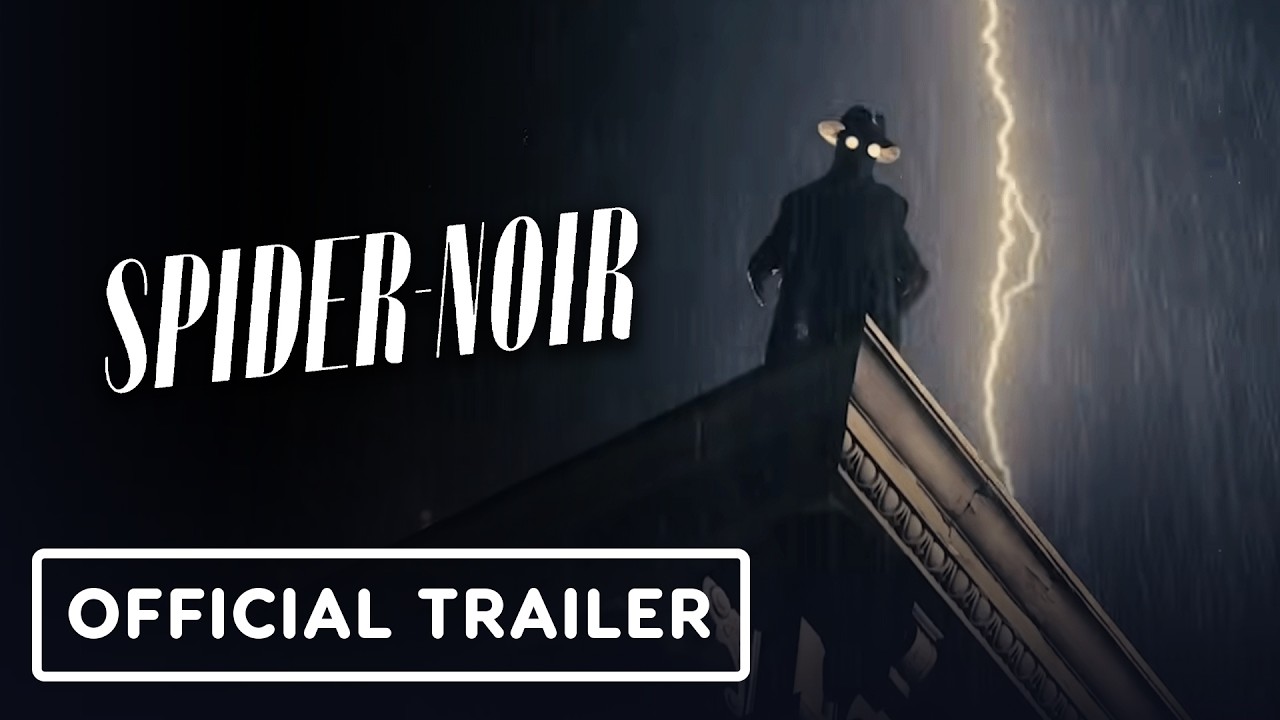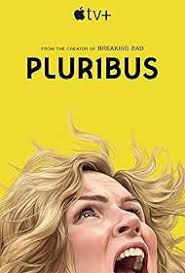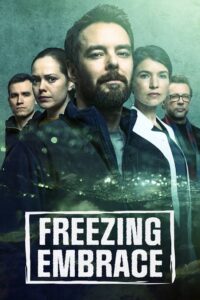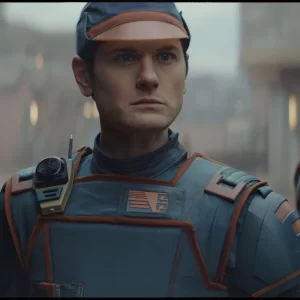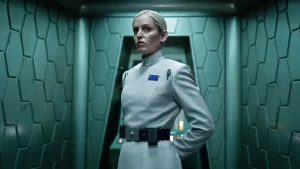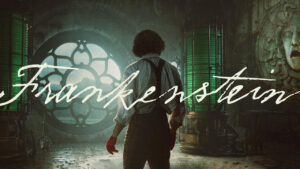.
Spider-Man: Into the Spider-verse introduced to the silver screen a number of Spider-Man variants with its central protagonist being the young Miles Morales but one of the favorites to emerge from the strange, animated team up was Spider-Man Noir, a 40s styled, film noir, detective enhanced with spider-like abilities, and voiced with manic perfection by internet favorite Nicolas Cage.
Last night I stumbled across the trailer for a new television series premiering on Amazon Prime in May 2026, Spider Noir, a live action continuation of the adventures of Spider-Man Noir, starring Nicolas Cage.
Much as my love of Warner Brothers’ gangsters movies and classic Universal monsters is making it impossible for me to sidestep The Bride! this mash-up of film noir tropes with the over-the-top manic style of Cage makes Spider Noir equally irresistible.
Just as the trailer was reaching its end, I thought to myself, it is a bloody shame that the series is not in glorious black-and-white. One of the more amusing aspects of the Spider-Man Noir character in the animated film was his puzzlement over things with color as he continued to be rendered in a stark greyscale. Then the trailer’s image suddenly shifted to black-and-white accompanied by text indicating the program could be watched in either format.
Man, I hope they pull that off well.
A few films in the last decade have released black-and-white versions to home video going for that vintage film noir aesthetic, three notable ones were Logan, Mad Max: Fury Road, and Nightmare Alley. I have seen all of these movies, which are each exceptional examples of the cinematic arts, but honestly only one of them really worked in Black-And-White.
Both Logan and Mad Max: Fury Road looked simply like the film’s color data had been deleted, the greyscale nature of the image had none of the life or vibrancy of a shot composed and production designed for Black-and-White cinematography. del Toro’s remake of the film noir classic Nightmare Alley on the other hand, looked better in its Black-and-White version than it did in the full color rendering. I do not know this for a fact, but I would bet dollars to donuts that del Toro guided every aspect of production design and photography with a monochrome sensibility in mind, but, aware that the studio would balk at releasing it solely in that format. Nightmare Alley, though dragged down by a bit of casting, in both color and in Black-and-White looks fantastic, just better in the monochrome that evokes both the pre-war period of the story and the associations with classic cinema.
Monochrome cinematography is not just shooting with B&W film, or digitally removing the color data, it is understanding that color itself registers differently when photographed in Black-and-White. It is knowing that blood looks too pale and something dark brown is more ‘realistic’ than photographing a crimson liquid or knowing that colors that may garishly clash when seen in their full hues can be very complimentary in greyscale. There lies the real challenge of making a production for both color and Black-and-White, resolving those conflicts between the different requirements.
Did the production team of Spider Noir design from the ground up for both color images and Black-and-White? I do not know but man, oh, man I really hope that they did.
.
